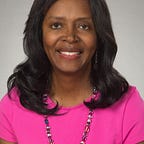Pivoting to Sustainability Through Covid: Part 1 of 3 Company Stories
Surviving and thriving through Covid-19 hasn’t been easy, but we talked to three companies who pivoted to success during the pandemic. Part 1: SaulPaul.
By Kim Folsom
In this three-part series, we’ll take a look at three companies who faced the challenges of the pandemic head on and won. Their stories offer a wealth of advice for any business looking to pivot to sustainability during the virus crisis.
Covid-19 has presented significant challenges for business owners and entrepreneurs of all stripes. At the peak of the virus, the closure rate for businesses in the food industry and arts & entertainment alone were nearly 35%. Services industry companies, who we predominantly work with at Founders First CDC, closed at a rate of 30%. But no business has been immune. It hasn’t exactly been the Hunger Games, but Covid has created a particularly cutthroat, pivot-or-die test for many, many businesses.
Executives and entrepreneurs who want their businesses to survive and thrive in the future can benefit from looking at some key examples of how other companies are adapting well through the pandemic. I recently talked to three such business leaders who are doing just that. I think their stories can serve as inspiration for all business owners and managers. Hopefully, these case studies will give you some ideas for how you too can pivot and increase revenues in this improving, but ongoing Covid environment.
SaulPaul
SaulPaul, “the musician with a message,” is a Grammy-nominated artist, author, and motivational speaker. The very nature of his business required him to travel for performances, keynotes, and consultations. He flew around constantly visiting government agencies, cities, schools, universities, and businesses. Covid was a hard stop to all of that.
“The entire world shut down on March 13, 2020,” he said. “When people couldn’t gather and travel, businesses like mine were decimated.”
But SaulPaul did his first live streaming event by the end of that month and learned that his facilitation techniques really created the experience — even online. He could succeed without being there physically. The quality of what he was offering didn’t diminish when he went from “live to live stream.”
Further, everyone has had to work online, SaulPaul said. So, how can you adapt your business to take market share in this new kind of environment?
Change your strategy without changing your vision — that’s his recommendation.
And always look for new opportunities. SaulPaul diversified in a big way when he founded Change Water — a bottled water company that fits his brand. “It’s not booze, it’s not soda,” he said. “You can hydrate and create social good at the same time.” When you buy Change Water, a portion of the proceeds are donated to local charities.
Never underestimate the power of the pivot. SaulPaul even breaks the word pivot down to some precepts to follow:
P — Perspective. It’s all about having the right mindset.
I — Insight. What advantages do you have because you already operate a business now?
V — Vision. Where do you want to go?
O — Opportunities. What opportunities are available? And how can you turn challenges (like Covid) into opportunities?
T — Take action. You don’t have to risk everything. Do it reasonably with moderate risk. Don’t be afraid to fail fast and then move on to the next thing.
SaulPaul also recommends studying other companies to see how they are succeeding. Can you understand why and apply a principle you learned to your own business? (Hopefully this series of articles will help!)
It’s not always going to be easy. He quoted former heavyweight fighter Mike Tyson, who once said, “Everybody has a plan until they get punched in the mouth.” We’re all going to take our hits. You have to get back up and keep fighting.
Figure out what your customers really want from you. Is it entertainment? Inspiration? Empowerment? A practical way to solve a problem? Test the market and remember, you may have to pivot more than once to thrive in today’s world.
In Part 2, we’ll talk about another company, San Diego Code School, that had to significantly adjust their business model to succeed during Covid.
Kim Folsom is the founder and CEO of Founders First CDC, which has helped accelerate the success of hundreds of small, service-based, business-to-business companies since 2015. Visit our website to learn more.
